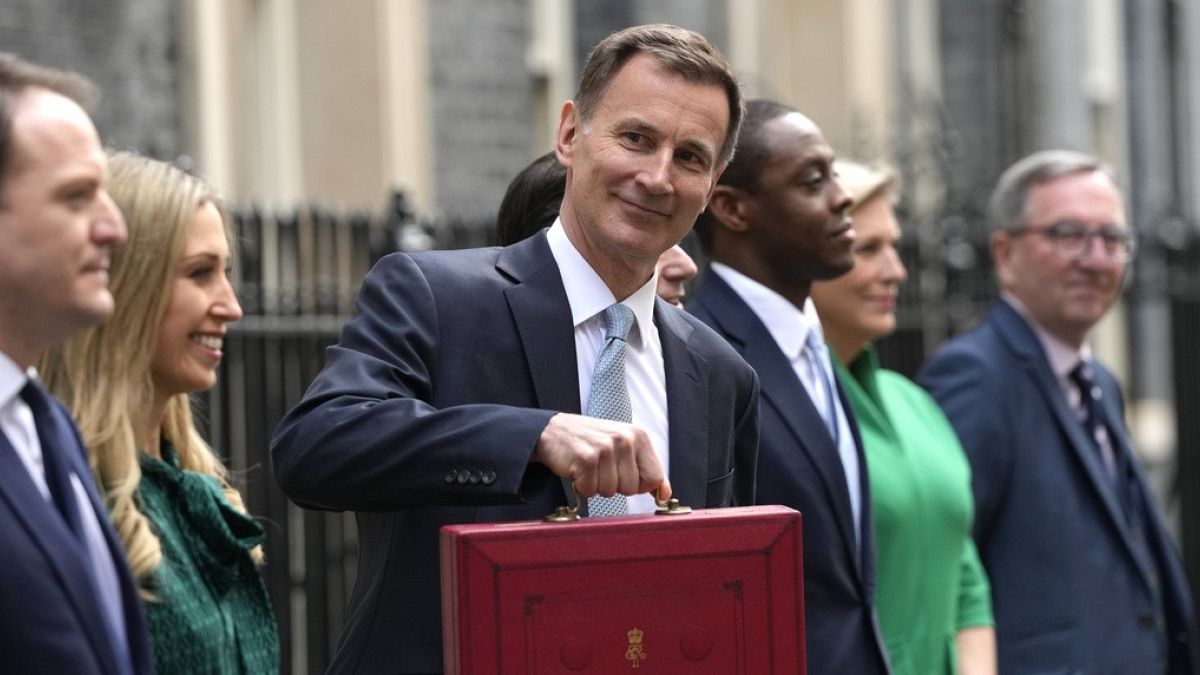When the Chancellor addresses Parliament on Monday, she is expected to announce quick, significant cuts worth billions of pounds in an effort to close a £20 billion deficit. Chancellor’s Budget Cut is expected that Rachel Reeves’s plan will involve the shelving of a number of infrastructure projects, such as rail and road projects, reducing the amount of money spent on outside consultants, and making a determined attempt to eradicate inefficiencies in the public sector.

She is anticipated to charge the outgoing administration with hiding departmental budget shortages and then running away from accountability. On the other hand, the Conservative Party claims that the Chancellor’s statements are just a smokescreen to support tax rises.
A Treasury internal audit of public finances will be released on Monday, revealing a projected £20 billion disparity between tax receipts and anticipated expenditure. The Chancellor will argue that this necessitates “immediate measures” to restore economic equilibrium and “rectify the foundations of our economy.”
Potentially impacted projects include the controversial road tunnel beneath the Stonehenge World Heritage Site and Boris Johnson’s New Hospital initiative. Prior to the election, eminent economists had warned that the figures did not align, predicting that the incoming government would face a stark dilemma: to either augment taxes, curtail spending, or forgo its debt reduction commitments for the medium term.
However, the new government has found the budgetary position to be far worse than expected, describing it as “catastrophic” after new ministers have carefully examined departmental records and found further financial demands. Some of these disclosures are said to have “genuinely appalled” Ms. Reeves.
At this juncture, she will not propose tax hikes but will invite the Office for Budget Responsibility to evaluate the public finances. She will also initiate a Spending Review to scrutinize departmental budgets over a longer horizon. Fiscal reviews or similar events will occur annually, with Ms. Reeves expected to announce the date for her first review in the autumn.
Sources suggest that had the Chancellor intended to implement tax increases, she would have convened an emergency budget this week. Instead, she is likely to reaffirm manifesto pledges to maintain current personal tax rates, including income tax. Michael Saunders, a senior advisor at Oxford Economics, projects a “smaller contraction in public spending,” but he also adds that it would still be “relatively severe,” with significant tax increases.
He made the following statement to the BBC’s Today program: “I anticipate the Chancellor highlighting various projects that were either unfunded, underfunded, over budget, or behind schedule.” “Consequently, the Chancellor will likely assert that the state of public finances is even more dire than initially feared.”
Along with appointing compensation hikes for specific public sector workers, Ms. Reeves is anticipated to disclose the recommendations of independent pay review committees. This would require paying teachers, military personnel, and jail staff above-inflation pay adjustments, among other people, and would require more funding to cover these expenditures. According to the Chancellor, the cost of these compensation settlements needs to be evaluated against the damage that strikes have done to the economy and the difficulty in finding and keeping employees.
Furthermore, she will introduce a new “Office of Value for Money” designed to identify and propose savings, including within the current fiscal year, to preemptively eliminate inefficient spending.
Recently, Home Secretary Yvette Cooper disclosed that the Conservative plan to deport asylum seekers to Rwanda had cost taxpayers £700 million, nearly twice the previously reported figure. Moreover, the departments have concluded that some spending needs cannot be satisfied with the funds allocated in the current budget. Environment Secretary Steve Reed disclosed on Sunday that flood defenses were “much worse than initially indicated.”
The Conservative Party claims that before to the election, governmental finances were transparent and unambiguous. Former Tory Chancellor Jeremy Hunt claims that the present government is “peddling falsehoods,” whereas financial records point to a “healthy, growing economy.”
Shadow Transport Secretary Helen Whately said on BBC Breakfast that “labour inherited a robust economy—the fastest growing in the G7 with historically low unemployment—which placed them in a favorable position.” She stated that Labour was “deliberately framing a narrative” in order to justify tax increases.
For more latest news checkout our website: latestglobalinsight